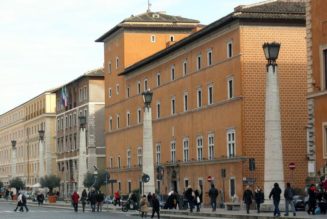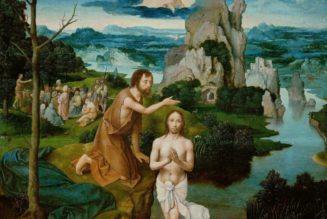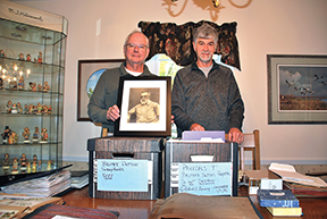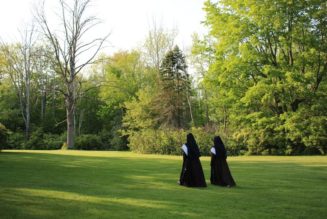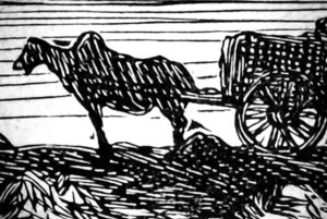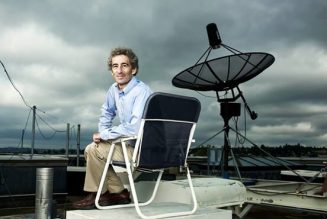“And give the physician his place, for the Lord created him… There is a time when success lies in the hands of physicians, for they too will pray to the Lord that he should grant them success in diagnosis and in healing, for the sake of preserving life.”
Ben Sira, The Book of Sirach
Physicians—in the broad sense of any practitioner of the medical art—have a specific and crucial place in human life. What that place is can easily be mistaken, perhaps especially today, both by those practicing it and those practiced for.
Ben Sira, author of the book of Sirach, gives special attention to physicians—as well as to practitioners of all crafts—and their place in life. His consideration is rooted in a profoundly rich worldview. The world itself is an incarnation of wisdom, a masterpiece of order that shows forth the mind of God. “The Lord himself created wisdom… he poured her out upon all his works.” And further, every human person can not only discover this order but also enter into it by participating in it and enacting it.
Certain features of enacting wisdom pertain to all persons. At the same time, Ben Sira focuses on different ways that various persons should do so. Husbands and fathers, wives and mothers, intellectuals, merchants, tradesmen, teachers: each and all have specific roles in enacting the great order. Each can begin with humility and search to discover their special place in the whole.
Ben Sira’s references to physicians point to some key features of the medical art and vocation. First, to use an Aristotelian distinction, the physician’s art is precisely that: an art, not a science. There is indeed ‘science’ behind the art. But what the physician actually does as a physician is an art. What is the difference? Science as such, in the Aristotelian sense, deals with universal and unchanging truths. There is a science of human health, rooted in a science of the living body—yet even here what really qualifies as science can be elusive.
The physician as such is a practitioner of an ‘art,’ a know-how. All arts or know-hows have some universal truths as a foundation, yet they are about applying these truths to actual, concrete situations. (And many of the principles in art are only ‘true for the most part,’ and not always.) The architect knows certain truths of geometry and structural forces; yet he (or the carpenters!) must apply these to the messy reality of these particular pieces of stone and wood. This is why in the practice of arts Aristotle notes if you must choose between the man of ‘science’ and the man of ‘experience,’ you would probably go with the latter. Of course both is best.
So what of physicians? Practiced rightly, their work is of central importance, even if only realized by some of us in a time of need. This is an art of life. Human life. Here especially an art bumps up against the astounding richness—and at times the opacity—of concrete reality: the living body of this human person! How to discern the truth of what is going on here? How to discern the best course of action?
Though study and practice yield invaluable results, no advance of science and no length of experience will ever remove the challenge of discerning and directing this person toward health, right now.
And so Ben Sira speaks of a physician praying. This is not window dressing or bedside manner. It is not primarily for the comfort of the sick or the family. It is not out of desperation, or because something has gone wrong. It is not to make up for lack of study or practice.
For those who have eyes to see, this is part of the medical art. Of course it is. How many times do ‘science’ and ‘experience’ fall short in the pursuit of health?
For the physician, to pray is to recognize the truth of the situation: I see what I can see, and I cannot see what I cannot see. Oh Lord, guide me. I will do all that I can. I ask you to empower me, and to make up for my failings. Please, work through me. For the life of your precious child, whom I serve.
And somehow, this is part of the wise plan, and our taking part in it. The medical art is profound and powerful. It is what it is, and it is not what it is not. Ben Sira writes: “And he [God] gave skill to men that he might be glorified in his marvelous works. By them he heals and takes away pain…”
Ah, the wonder of what sages call ‘secondary causality!’ The physician can be a real cause of healing and taking away pain. At the same time, perhaps especially in experiencing the limitation of the medical art, both practitioners and those served by them can see something else. Something that transcends medicine and bodily health.
God is always the first cause. This is scientific. And, he works in and through other persons, who are also real causes of astounding effects. Sometimes the effects, the outcomes, are not what seemed best, to us. But there can be hidden effects too; especially when, by prayer, we discover and enter into the larger plan.
It is always about life. Real human life. And wisdom is justified in her children.
~ ~ ~
STILL TIME TO SIGNUP: Man of the Household Course and Woman of the Household with LIVE sessions. FREE. Men Signup here and Women Signup here to start this week. Gather friends or a group and do it together. Spouses can take respective courses at the same time, and make concrete resolutions together. Great for a Lenten practice. Optional LIVE orientation meeting online Wednesday night March 9 (one meeting for men, one for women) Signup for details and link.
While the courses are especially geared to married men and women, they are also suitable for all men and women.
“To any ladies who wish to get married, I suggest: Marry a man who can fast.” a Benedictine This is an interesting requirement in looking for a spouse. Immediately we might reflect that surely anyone can fast. But then again, there is fasting, and there is fasting….
“I take this to Mommy.” A little boy in the woods The other day while cutting firewood I had occasion to reflect on one of the great wonders of the world: the human boy-child. My two and a half year old grandson is, how else to say this?, one hundred percent boy….
If men could be contented to be what they are, there were no fear in marriage. Shakespeare, All’s Well That Ends Well There is often fear in marriage, and it can be of several kinds. I think Shakespeare’s object here is perhaps the primary fear attending marriage,…
Husband, father, and professor of Philosophy. LifeCraft springs from one conviction: there is an ancient wisdom about how to live the good life in our homes, with our families; and it is worth our time to hearken to it. Let’s rediscover it together. Learn more.

Join us!
Please enter your email address to receive a Wednesday Quote and Reflection once a week. I would be honored to be partners in mining the wisdom of the ancients.
You have Successfully Subscribed!
Join Our Telegram Group : Salvation & Prosperity




